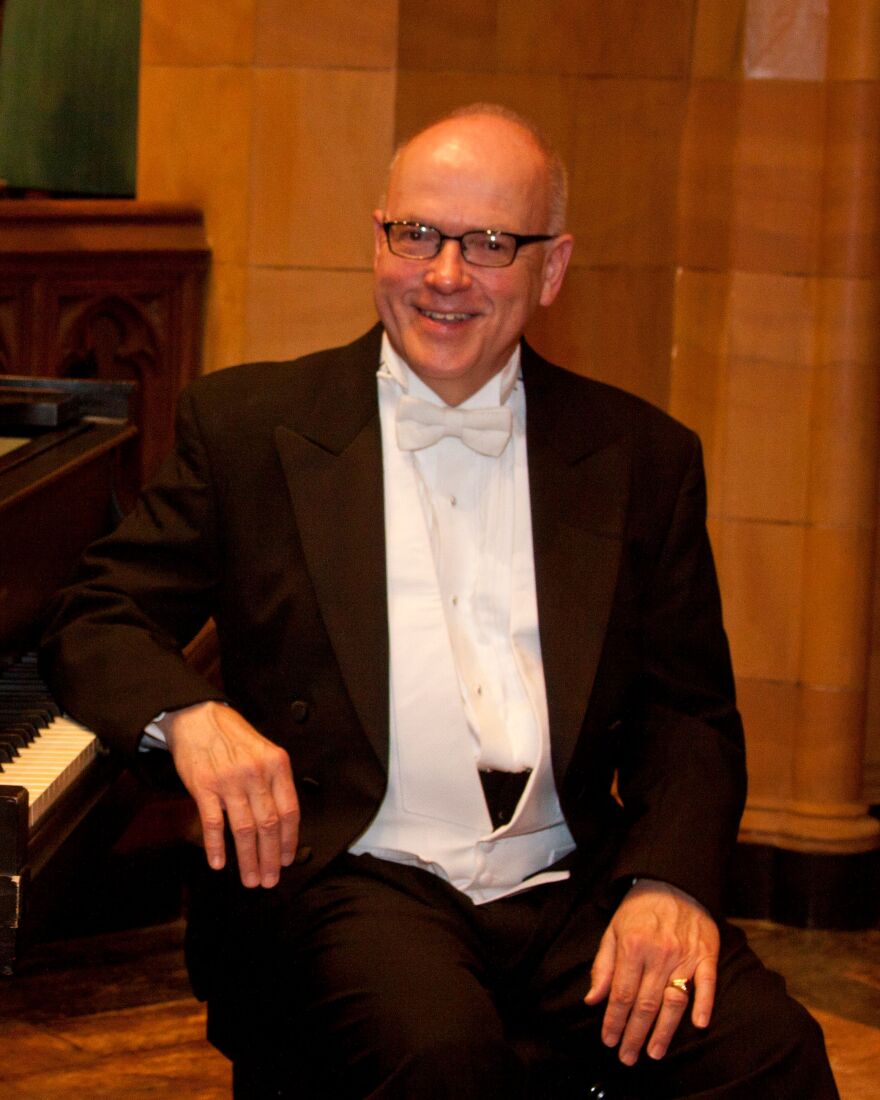Everything about the show screamed: "Look, record music sales are free-falling and we who run things don't have the slightest idea how to reverse it."
I am old enough to know better, but I still make a point of watching the Grammy Awards every year, in the quaint belief that I should be keeping my finger on the pulse of American music.
After last Sunday’s headache-inducing show, I feel like Groucho Marx in “A Day at the Races,” as he placed his thumb on the wrist of an ailing Harpo: “Either this man is dead or my watch has stopped.”
Is this really the best the recording “academy” can do to celebrate, in its own words, the power of music?
A 37-minute (or so it seemed) opening medley by AC/DC?
A sad little burlesque by the underdressed 57-year-old Madonna, who wasn’t even nominated for anything?
Another chance to observe that the once-promising Kanye West is continuing his slide into some kind of award-show dementia?
A wince-inducing tableau of Paul McCartney playing the role of redundant, lyric-forgetting (his own, no less) sideman?
An understandably bewildered-seeming 22 year-old singer named Sam Smith being showered with the evening’s most coveted awards, after about six highly inconclusive months in the business?
Everything about the show screamed: “Look, record music sales are free-falling and we who run things don’t have the slightest idea how to reverse it, and the only thing we can think to do is put on a frantically overproduced evening of phony, forced excitement and hope that this will somehow save our sagging, directionless industry.”
What to do?
Assuming the show isn’t canceled next year (viewership was off by an alarming eleven percent this time around), I think the Grammy brain trust should go radical.
And by radical, I mean they should put their money where their mouth is, and give the stage over to the widest possible range of styles and genres and traditions. There are 83 categories of Grammy Awards. But on the telecast we only see a few, and all of them drawn from the pop/rock/hip-hop or country universe.
Not to be predictable, but there used to be, for instance, at least a token classical segment on the show. And often it was exciting.
This year, the closest we got was a cameo by pianist Lang Lang, who apparently flew in to L.A. to play eleven seconds’ worth of gratuitous sloppy octaves in support of Pharrell Williams’s inexplicably darkened version of his hit “Happy.”
Jazz gets treated equally shabbily. I mean, I’m as pleased as the next man that Tony Bennett can still be more or less credible at 88, and I am pleasantly surprised by Lady Gaga’s ability to get around a standard like “Cheek to Cheek.”
But if jazz is truly our nation’s homegrown art music (as the academy solemnly asserts), let’s see some living, breathing examples of it up there. This year’s nominees and/or winners included such masters as Chick Corea, Kenny Barron, Fred Hersch, Brad (West Hartford’s own) Mehldau, among others. Let’s hear them.
What, you’re worried that the restless, zombified TV audience will switch channels? They’re doing that anyway.
Be bold. Celebrate what you claim to value.
There’s more: Roots Music, Folk Music, Musical Theater Music, Latin Music of various interesting sub-genres. Let’s see it all.
Rosanne Cash had a great American Roots song this year called, “A Feather’s Not a Bird,” off a fine album called The River and the Thread. They both won awards, conferred in the afternoon ceremonies. It’s a nice story: the woman last won a Grammy when Ronald Reagan was president. Could you find a couple of minutes to squeeze her on to the 31/2 hour telecast?
The Music Theater winner was the cast album to the Carole King show, “Beautiful.” Surely time could be found for a quick number by that esteemed composer, a Grammy Lifetime Achievement Winner.
And speaking of Lifetime Achievement winners, could the show possibly be more disrespectful in announcing those recipients? For most of them, an anonymous voiceover, on the way to a commercial, was the extent of their televised “recognition.” (And for the record, dear voiceover person, the great French conductor/composer Pierre Boulez pronounces his name boo-LEZ, not boo-LAY. Way to make that career-capping moment just a little bit more special for the 90 year-old maestro.)
There’s more to be said, of course, but I feel shrillness coming on. Just one final point: the Academy professes to care about music education, and by all accounts it does indeed provide some important support for public school music programs. How much more convincing that effort would be if, on its once-a-year national showcase, the Grammy empire would demonstrate to our kids (and to us) that it values all music, rather than just a handful of supposedly commercial subcategories that the industry moguls are hoping -- none too realistically, it seems -- might save them.
Passing the Baton, Literally
Taking the reins of the choral group Concora (Connecticut Choral Artists) is, by the standards of our local arts scene, the equivalent of taking over the Alabama football program from Bear Bryant, or, I don’t know, succeeding Johnny Carson on “The Late Show.”
That’s because the group, for the past 40 years, has been led and in almost every respect defined by its redoubtable founder, Rick Coffey.

But in 2013, Rick announced he was stepping down, and a search process was immediately put into place. Now, after almost two years of winnowing, and live concerts by three finalists, a new Concora leader has been named.
He is Christopher Shephard, a much admired and well traveled choral director who has spent time in, among other places, Sydney Australia, where he oversaw an ambitious, internationally recognized project to perform the complete choral works of Bach.
Dr. Shepard will officially begin his tenure at the start of the 2015-2016 season, details of which will be announced shortly.
Dr. Shepard holds a Ph.D. in Musicology from the University of Sydney, where his dissertation focused on the performance history of Bach’s B Minor Mass in 20th-century America. He also holds degrees from the Hartt School and the Yale School of Music, where he studied choral conducting with Marguerite Brooks. In 2012, Dr. Shepard was awarded the Julius Herford prize for outstanding dissertation in choral music by the American Choral Directors Association.

Dr. Shepard will greet CONCORA friends and supporters on Saturday, February 28 at The Rite of Swing, CONCORA's annual gala fundraiser to be held at The Riverview in Simsbury, CT. For more information on that event, visit the Concora website, www.concora.org
Hair Apparent
We may live in contentious times, but one thing I think we can all agree on is that when the Music Director of our city’s symphony orchestra gets a new coif, it’s news.
Accordingly, behold Carolyn Kuan’s new look:

Steve Metcalf was The Hartford Courant’s fulltime classical music critic and reporter for over 20 years, beginning in 1982. He is currently the curator of the Richard P. Garmany Chamber Music Series at The Hartt School. He can be reached at spmetcalf55@gmail.com.







